Human-oriented AI for Harmonious Symbiosis | Global Finals of the Higher Education Track, the 8th Global Competition on Design for Future Education Successfully Held
date:2025-08-01 18:27author:adminsource:Smart Learning Instituteviews:
From July 26 to 28, 2025 (UTC+8), Global Finals of the Higher Education Track, the 8th Global Competition on Design for Future Education was successfully held at Changping Campus of Beijing Normal University (BNU). Jointly organized by BNU and the UNESCO Institute for Information Technologies in Education (UNESCO IITE), this year’s competition focused on cutting-edge themes such as “Human-oriented AI” and “Harmonious Coexistence.” By bringing together innovative perspectives from university students around the world, the competition aimed to explore the possibilities of technology-empowered education and contribute creative solutions for the future of education.
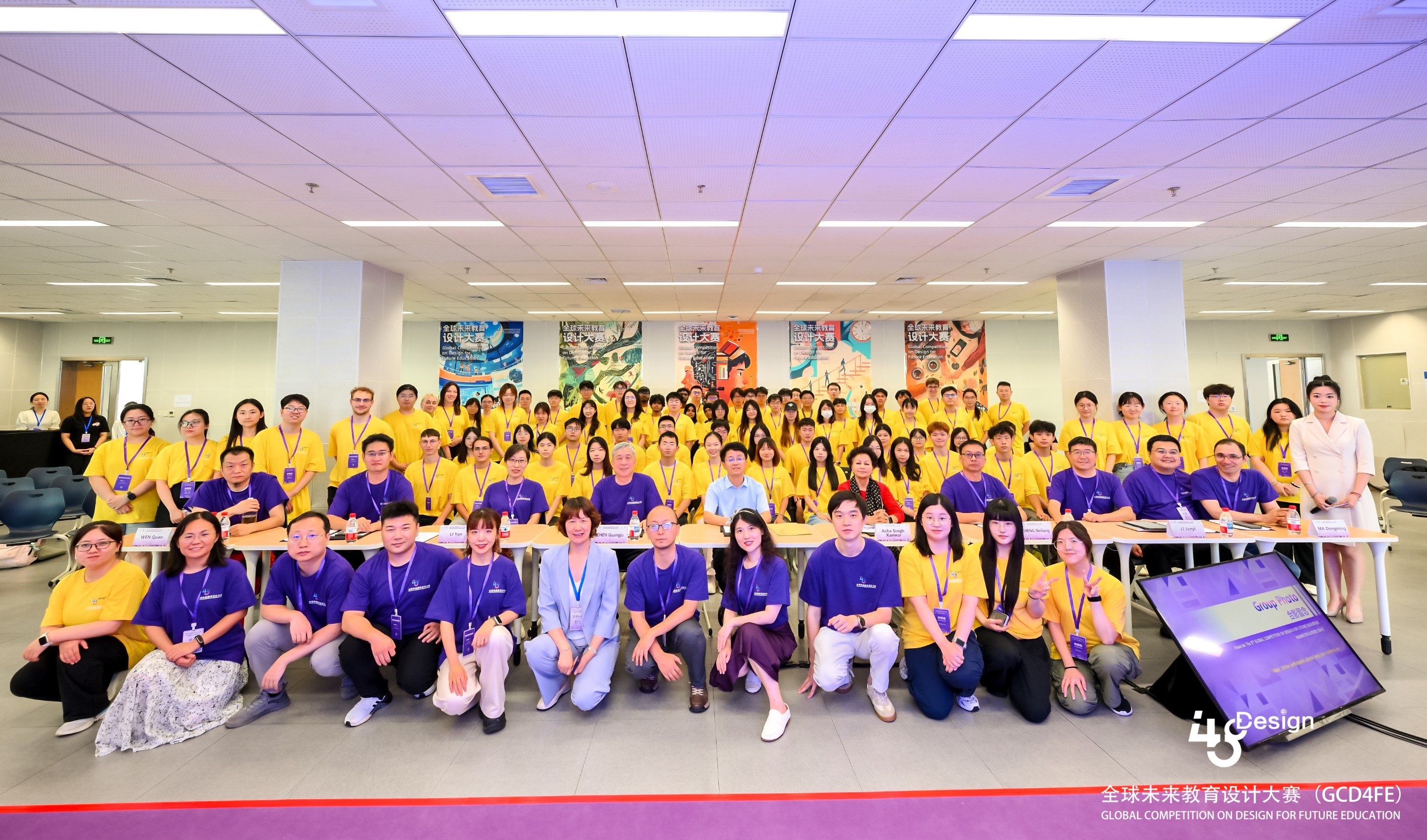
Group Photo at the Opening Ceremony
48H Educational Project Design
Prof. Asha Singh Kanwar, UNESCO IITE Governing Board Chair and BNU Chair Professor, released five forward-looking topics on behalf of the Organizing Committee. The topics included: Growth Curriculum System Design for Primary Schools Towards 2050 (Holistic Human Development), Design for Interspecies Learning in Nature (Human-Nature Symbiosis), Human-oriented AI Design (Human-AI Symbiosis), Learning Design for Mental and Physical Health (Holistic Human Development), Sustainable Intergenerational Cooperation Design (Human-Human Symbiosis). These topics encouraged participants to explore the relationships between people, machines, and nature, in search of a future of harmonious coexistence.
Topics of the Global Finals
The Global Finals was conducted in a hybrid format, combining online and onsite participation. Each team randomly drew one of the five challenge topics and completed the entire process, from conceptualization to final presentation, within 48 hours. Teams identified core problems on the first day, developed initial solutions on the second, and finalized their designs on the third day. After two rounds of presentations, with evaluations from expert mentors and votes from fellow participants, 18 outstanding teams advanced to the roadshow report session.
Project Design and Guidance
Project Presentation
Roadshow Report
Dual-Mentor System
The Global Finals of the Higher Education Track of this year’s competition introduced a dual-mentor system, inviting 14 expert mentors from fields including educational technology, art and design, and artificial intelligence. The mentor panel included: Dr. Yuening Bai (Ph.D., State Key Laboratory of Media Convergence and Communication, Communication University of China ), Dr. Ting Da (Postdoctoral Fellow, Faculty of Education, BNU), Mr. Junyi Li (Special Research Fellow, China Education 30 Forum), Prof. Yan Li (Associate Professor, School of Arts & Media, BNU), Mr. Dongming Ma (Lecturer, Department of Product Design, Beijing University of Chemical Technology), Dr. Saeed Dahdahjani (Senior Designer, Tsinghua University), Dr. Huanhuan Wang (Assistant Researcher Professor, BNU), Mr. Quan Wen (Founder of the independent design brand TUAN), Prof. Pengfei Xu (Associate Professor, School of Artificial Intelligence, BNU), Mr. Ran Zhang (Technical Director, AECO APAC region, Trimble Inc.), Dr. Yifan Zhang (Postdoctoral Fellow, BNU), Mr. Zishuo Zhang (CEO, Beijing Yitong Shijie Education Technology Co., Ltd.), Dr. Shiliang Zheng (Professor, Associate Dean, Vocational & Technical Teacher Education School, Shanghai Polytechnic University), and Dr. Wei Zhou (Assistant Researcher, BNU).
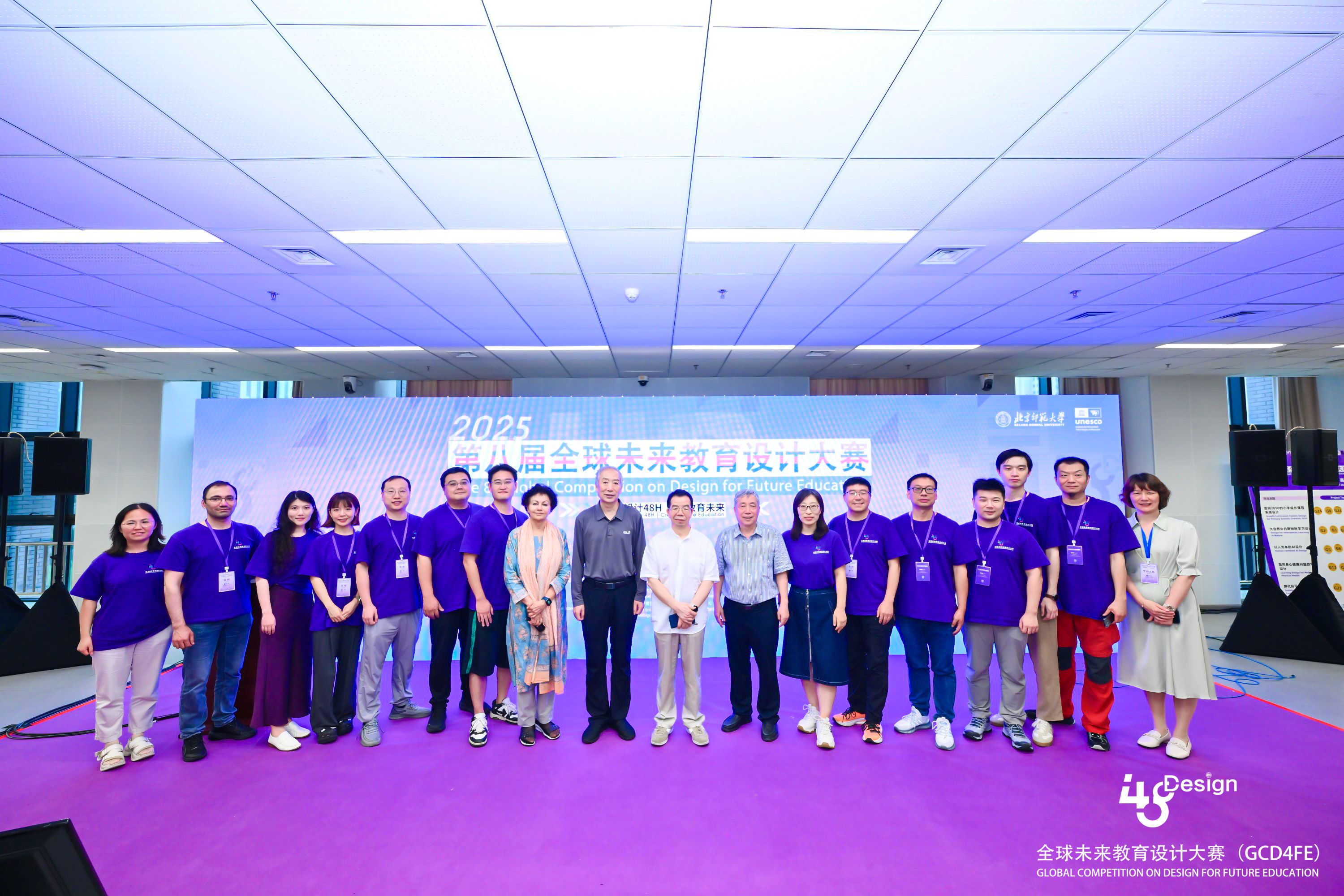
Mentor Team
In an era shaped by the rapid evolution of artificial intelligence, “human–AI symbiosis” has become a critical theme of our time. This year’s Finals not only reflected this in its challenging topics but also boldly innovated in its format by introducing five AI mentors. These included an AI Inspiration Mentor, an AI Design Mentor, and an AI Writing Mentor, who supported participants in building solid logic frameworks and transforming abstract ideas into compelling visual prototypes. Additionally, the AI Solution Evaluation Mentor contributed to project assessments and optimization suggestions. The AI Education Policy Mentor (EduPX) offered deep insights into global education policy-making, planning, implementation, and governance. These AI mentors worked alongside human mentors to accompany and guide the contestants throughout the entire process, from creative conception to presentation of their work. While helping the participating teams complete their tasks more efficiently, they also reflected on and explored the essence of human-AI collaboration.
Co-Creating with AI
Beyond the main competition schedule, a series of engaging and distinctive activities highlighted the Finals. The AI Debate sessions sparked critical thinking around topics such as “Does AI Undermine Creativity?” and “Should AI Translation Be Used in Academic Writing?” Contestants presented opposing views in spirited exchanges, while mentors offered valuable insights, together exploring the evolving academic norms and boundaries of innovation in the age of AI.
Participants also created AI-designed self-introduction posters, exchanged them with the other teams, celebrating cultural diversity from around the globe. Previous winners were also invited to share their experiences, passing the torch of creativity and excellence by bridging different generations. Other featured activities included the galaxy scriptwriter to spark creative stories, talent shows for self-expression, and cultural experiences such as touhu (pitch-pot) and tai chi for relaxation. In this vibrant blend of technology and the humanities, wisdom and creativity flourished, turning the event into a multidimensional academic carnival.
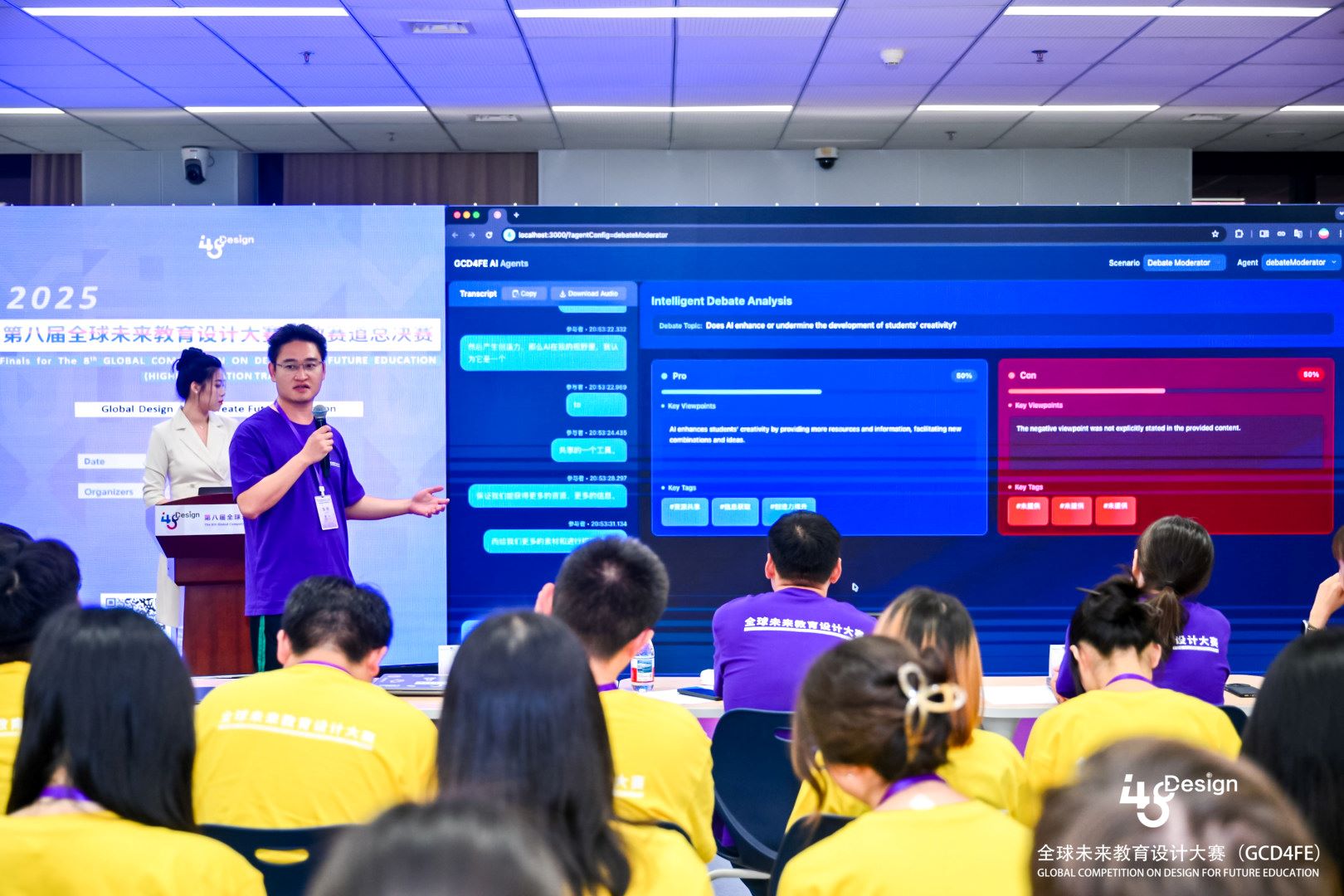
AI Debate
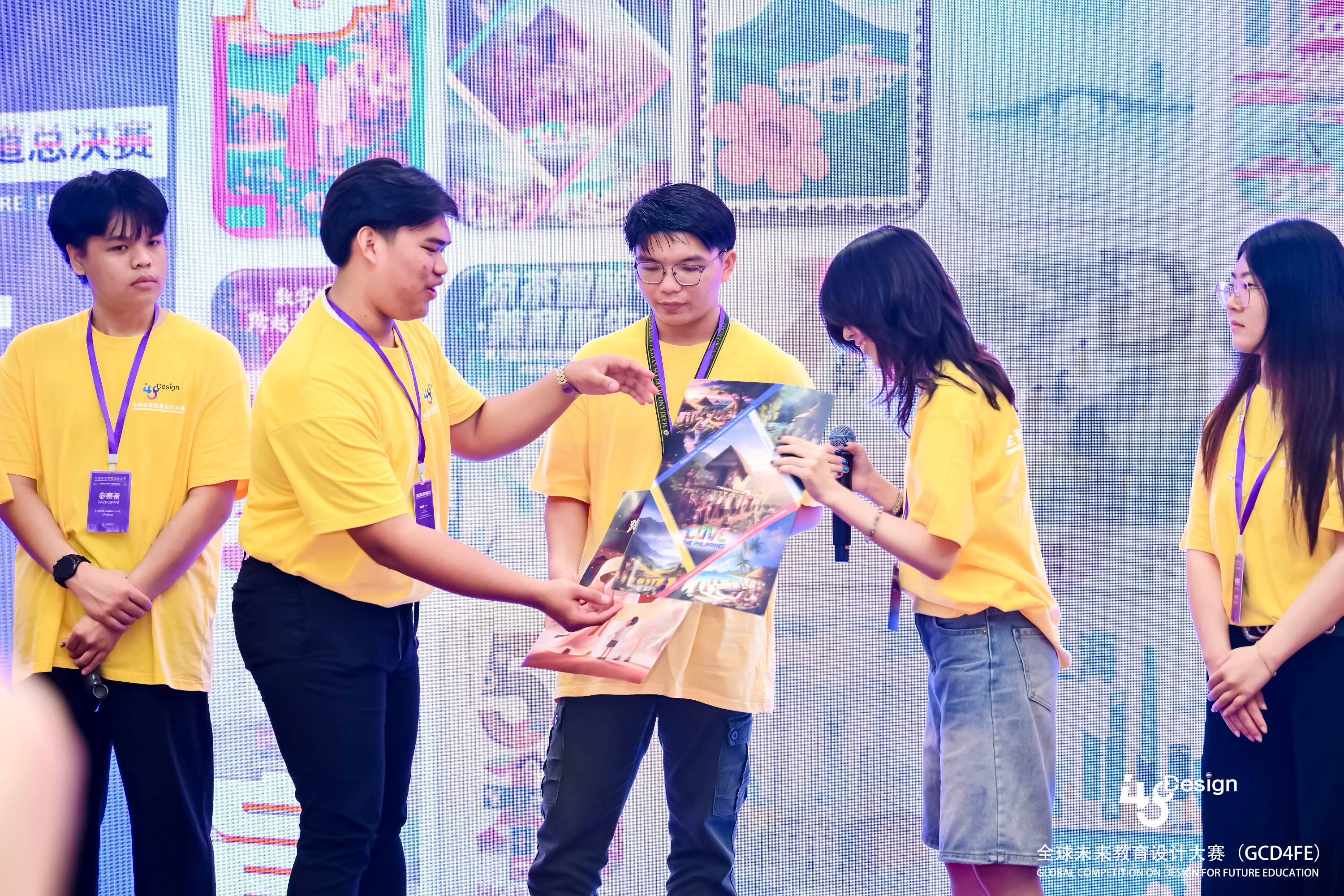
Exchange of Creative Posters
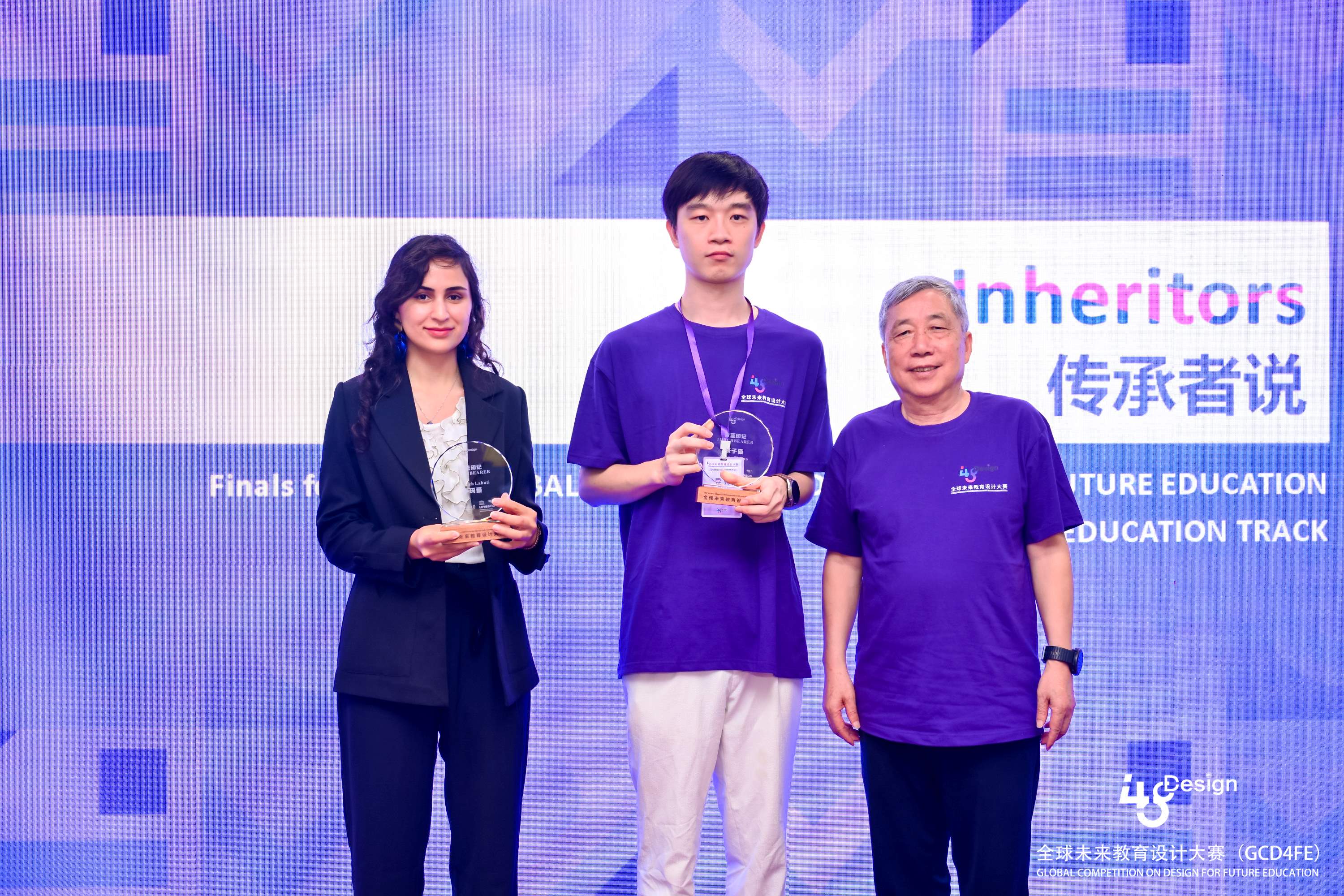
Experience Sharing by Previous Winners
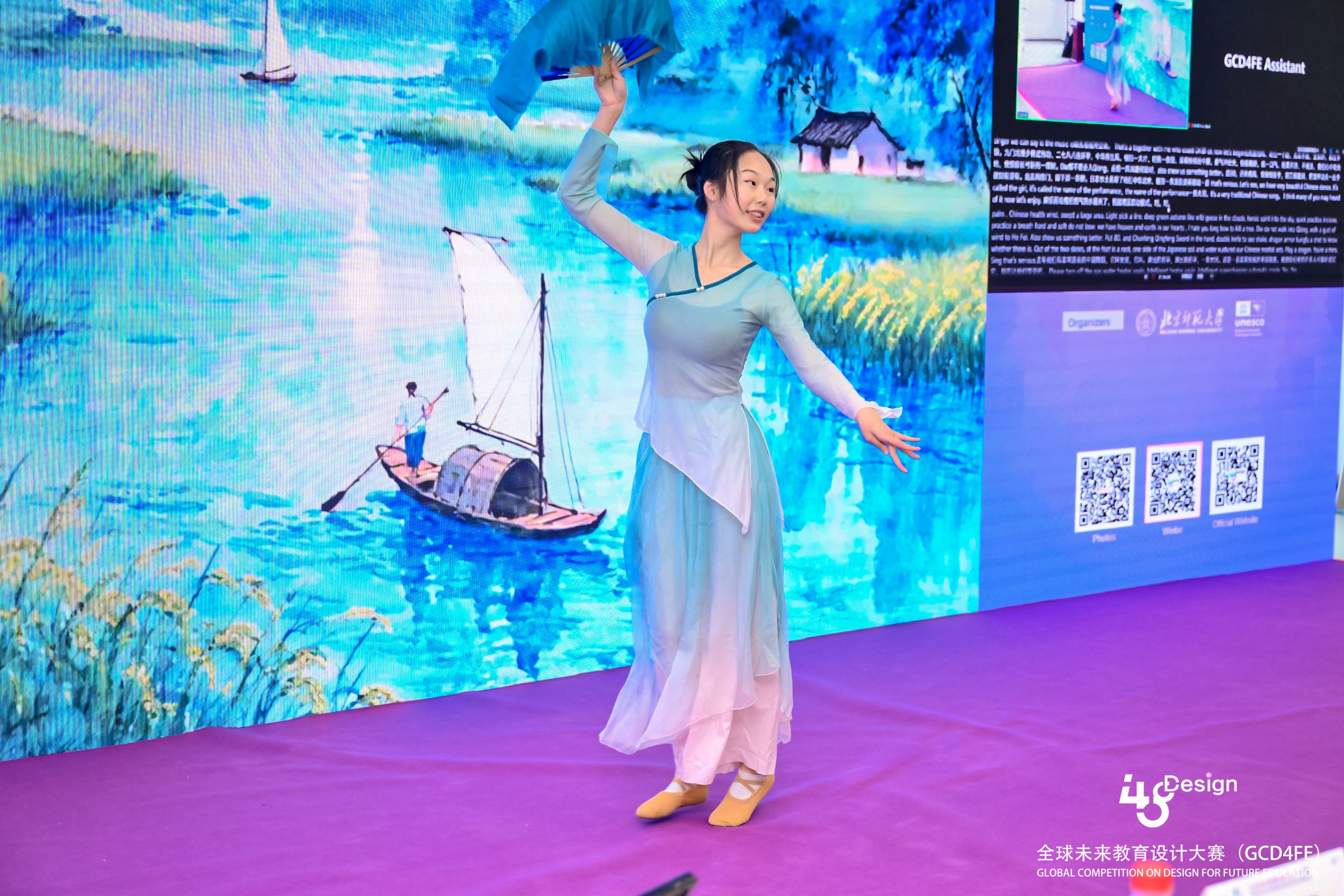
Talent Show
This year’s Global Finals also featured the use of digital avatars. Mr. Dejian Liu, Co-Chair of the Judging Committee, Co-Dean of the Smart Learning Institute of BNU, and Chairman of NetDragon Websoft Inc., was invited to introduce the Finals rules for competitors in the digital form. Prof. Guangju Chen, Chair of the Steering Committee of the Competition and Vice Dean of the Smart Learning Institute of BNU, addressed participants through his digital avatar with a brief introduction of the Competition.
Mr. Dejian Liu Introducing the Finals Rules
Guest Speeches
At the Opening Ceremony on July 26, Mr. Yanyun Zhang, Deputy Secretary of the CPC BNU Committee, and Professor Asha Singh Kanwar, UNESCO IITE Governing Board Chair and BNU Chair Professor, delivered opening remarks. Prof. Guangju Chen, Chair of the Steering Committee of the Competition and Vice Dean of the Smart Learning Institute of Beijing Normal University, officially launched the 48-hour Finals.
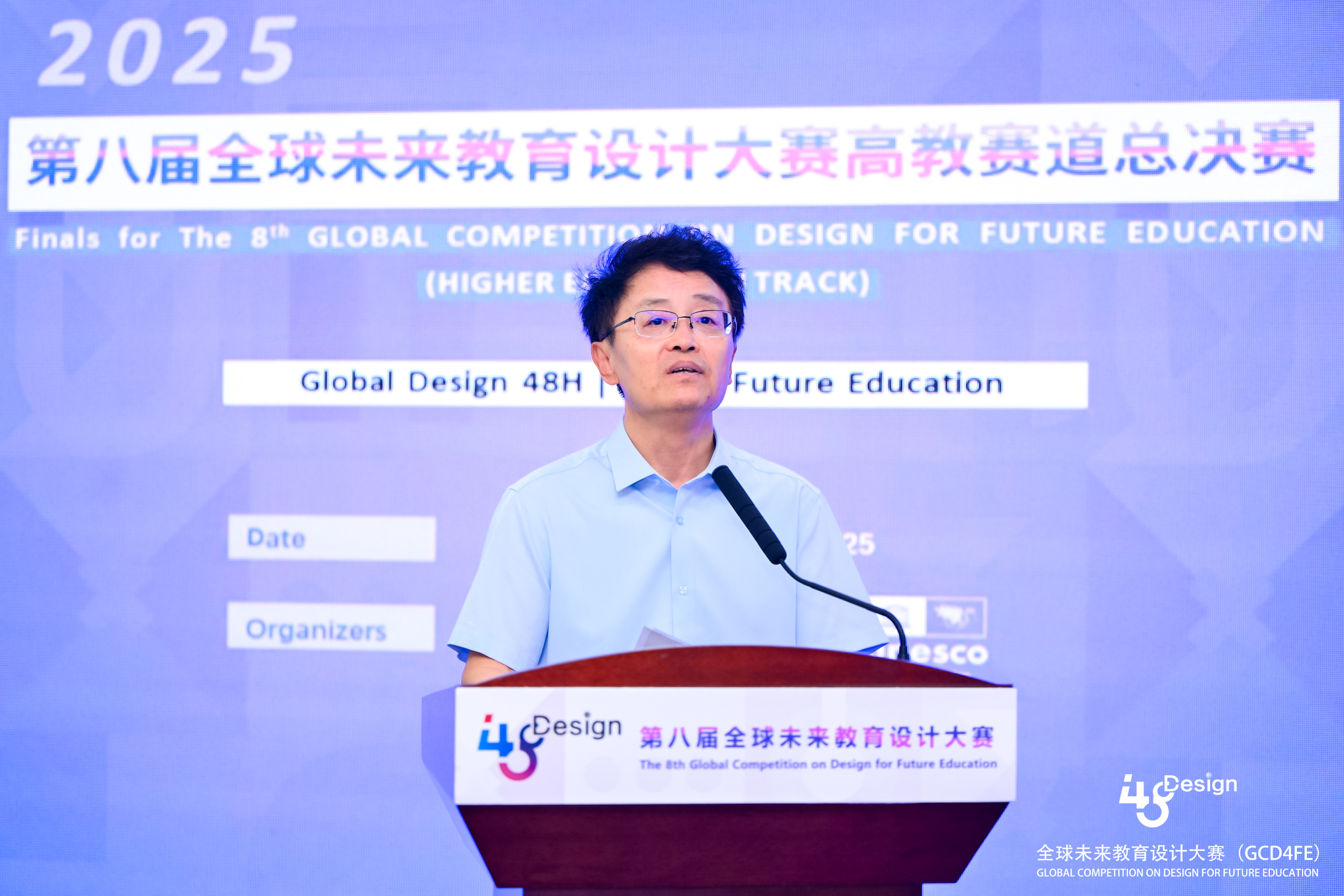
Mr. Yanyun Zhang Delivering Opening Remarks
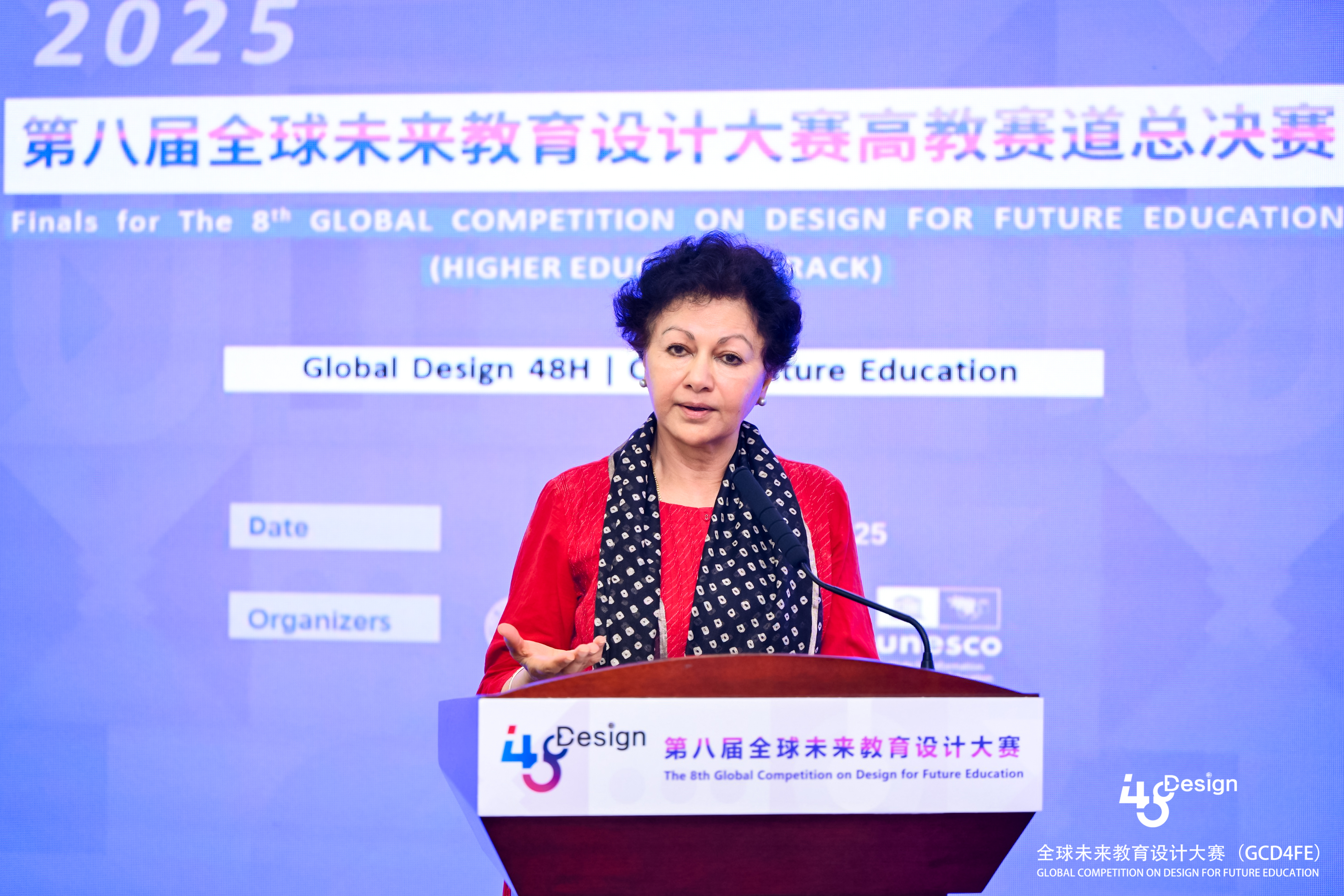
Prof. Asha Singh Kanwar Delivering Opening Remarks
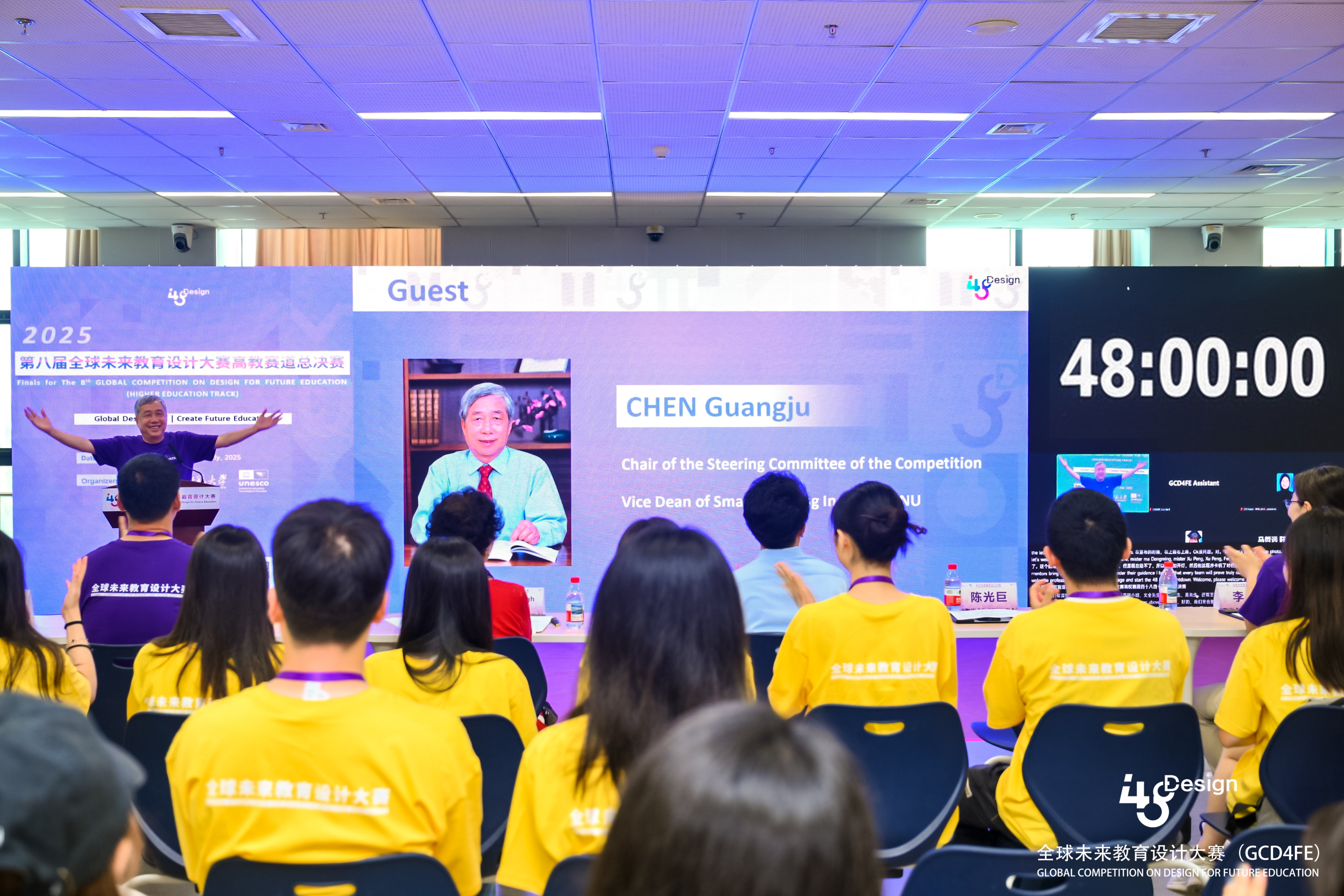
Prof. Guangju Chen Declaring the Finals Open
On July 28, the Closing and Award Ceremony of the Finals for the Higher Education Track took place. Mr. Tao Zhan, Co-Chair of the Competition Organizing Committee and Director of the UNESCO IITE, extended his congratulations to the finalists who advanced to the Global Finals. He expressed his gratitude to the organizing committee for their thoughtful organization and praised the teams for their innovative ideas and practical achievements throughout the competition. He noted that the competition has become a brand academic event at BNU, and affirmed IITE’s continued collaboration with BNU to bring together global wisdom, empower university students worldwide, and foster a platform for showcasing educational innovation. He also encouraged participants to join in designing and leading the future of education.
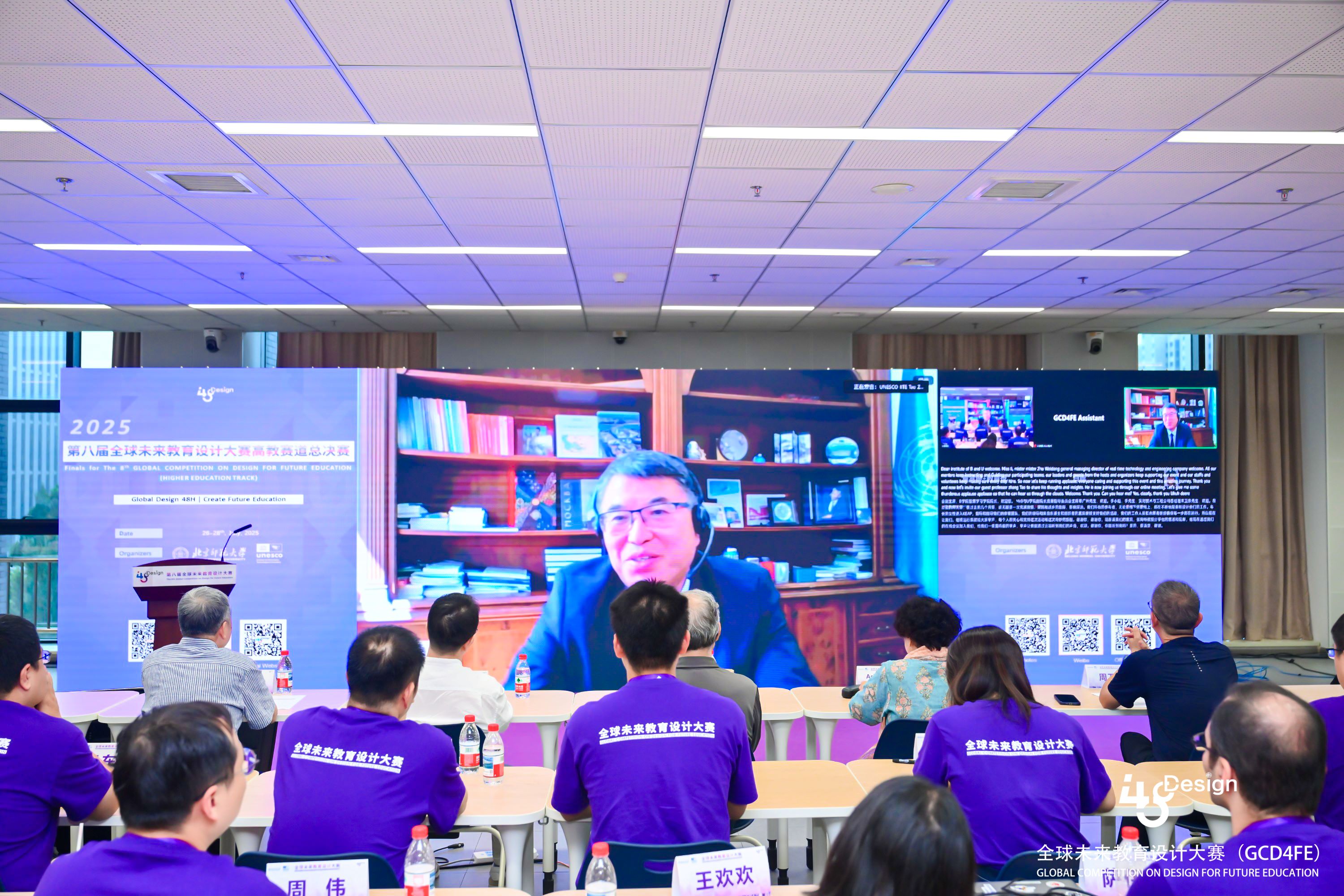
Director Tao Zhan delivering closing remarks
Prof. Ronghuai Huang, Vice Chair of the Competition Organizing Committee and Co-Dean of the Smart Learning Institute of BNU, along with Mr. Weidong Zhou, the General Managing Director of Rotime Technology and Engineering Company and an alumnus of BNU, attended the closing ceremony and presented awards to the winning teams.
Award Ceremony
The Judging Committee of this competition consists of internationally renowned experts from fields such as industrial technology, mathematical sciences, artificial intelligence education, and psychology. The judging committee—comprising Mr. Weizu Song, Co-Chair of the Competition Judging Committee and Founder of Beijing Design Society; Prof. Asha Singh Kanwar, UNESCO IITE Governing Board Chair and BNU Chair Professor; Ms. Natalia Amelina, Senior National Project Officer in Education, UNESCO IITE; Prof. Xiang’en Hu, Chair Professor of Learning Sciences and Technologies at the Hong Kong Polytechnic University; and Prof. Yanyan Li, Professor at the Faculty of Education at BNU and Vice Dean of the Smart Learning Institute —offered in-depth feedback on each project. The judges evaluated the projects based on five dimensions: problem awareness, innovation spirit, science and education integration, application prospect, and presentation and expression. They commended the participants’ creativity and dedication while also offering professional suggestions, such as encouraging awareness of the potential harms of technology, cultivating adaptive innovation for personalized learning, designing tools to support life in the digital era, and emphasizing social interaction and harmony with nature.
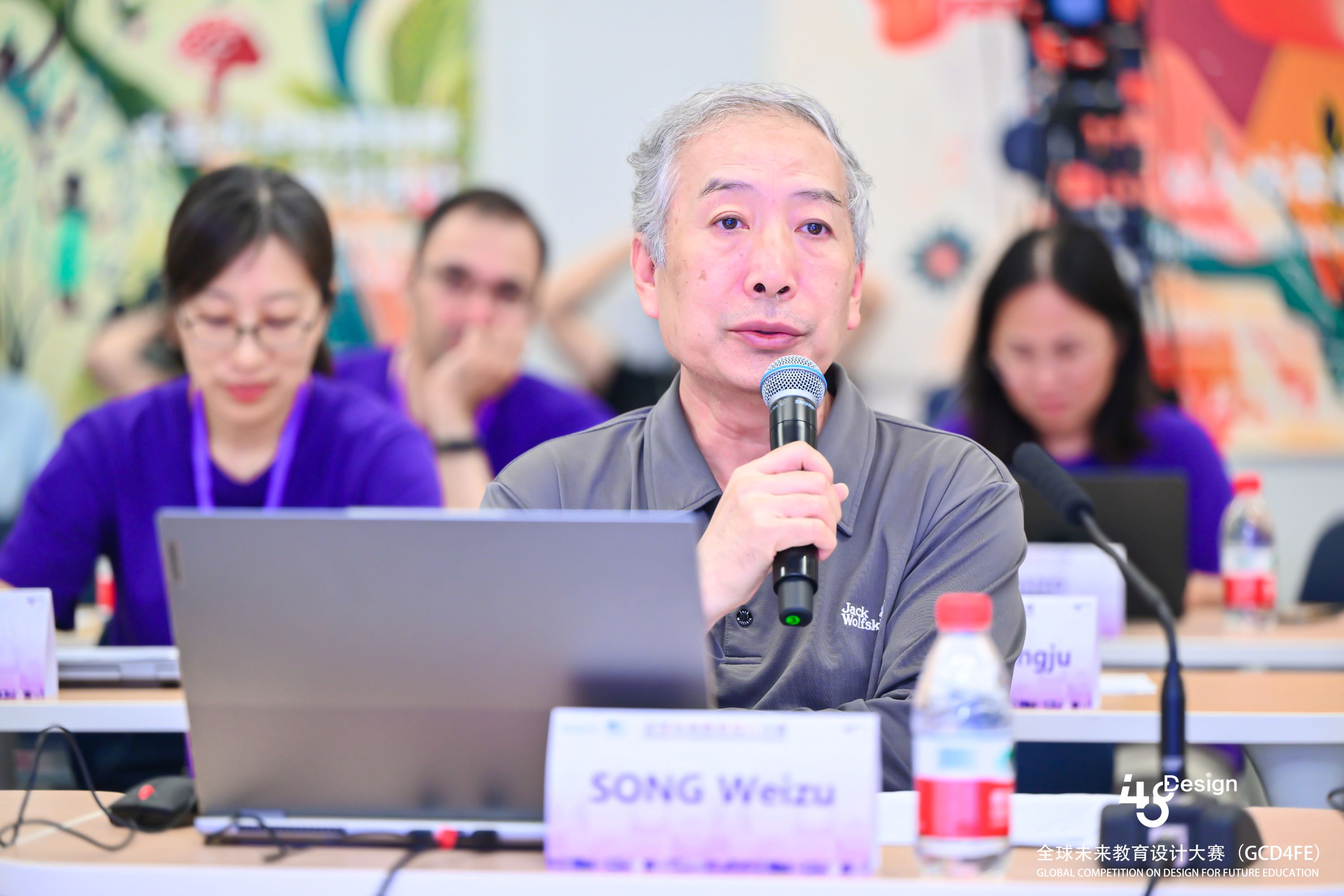
Mr. Weizu Song Providing Feedback
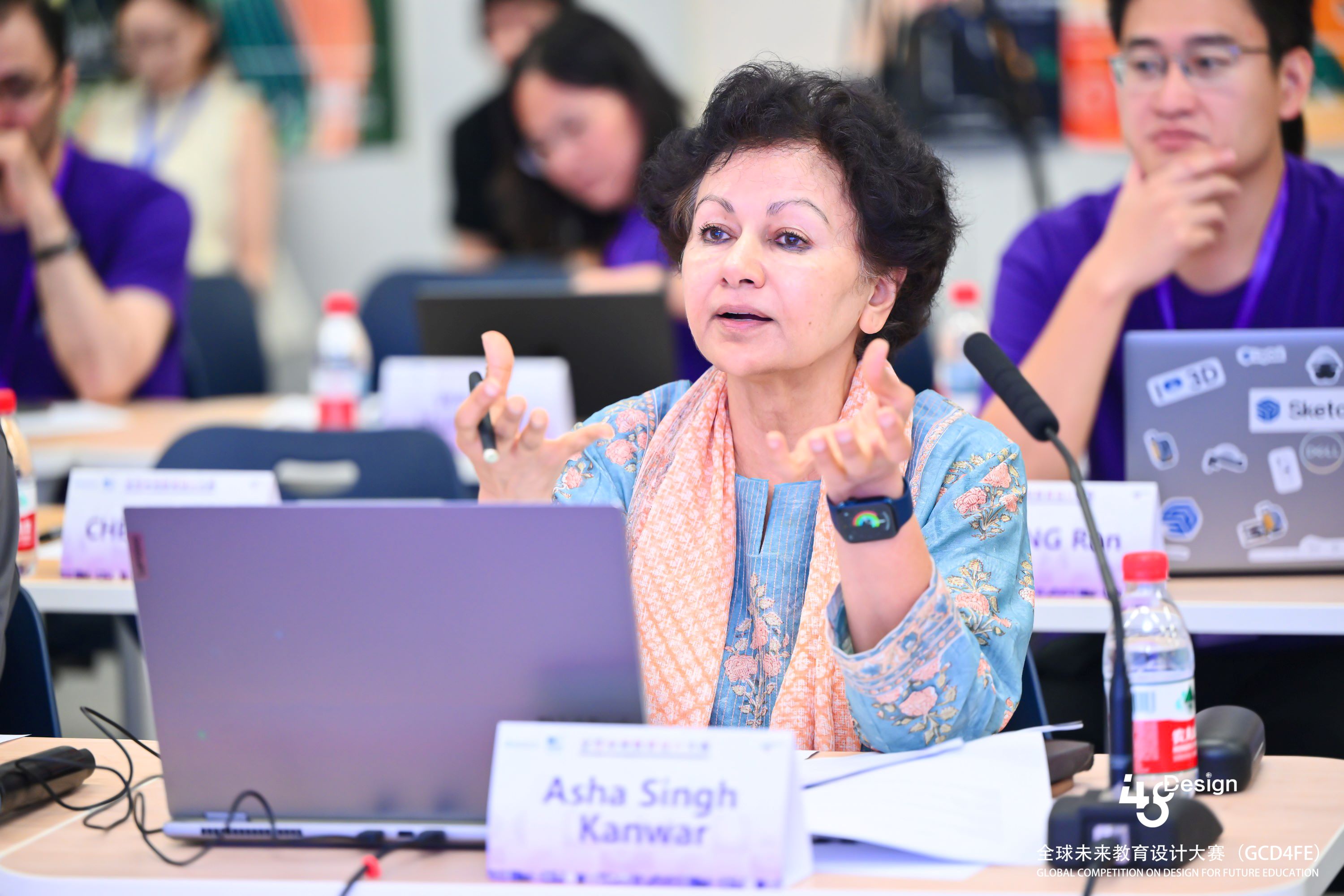
Prof. Asha Singh Kanwar Providing Feedback
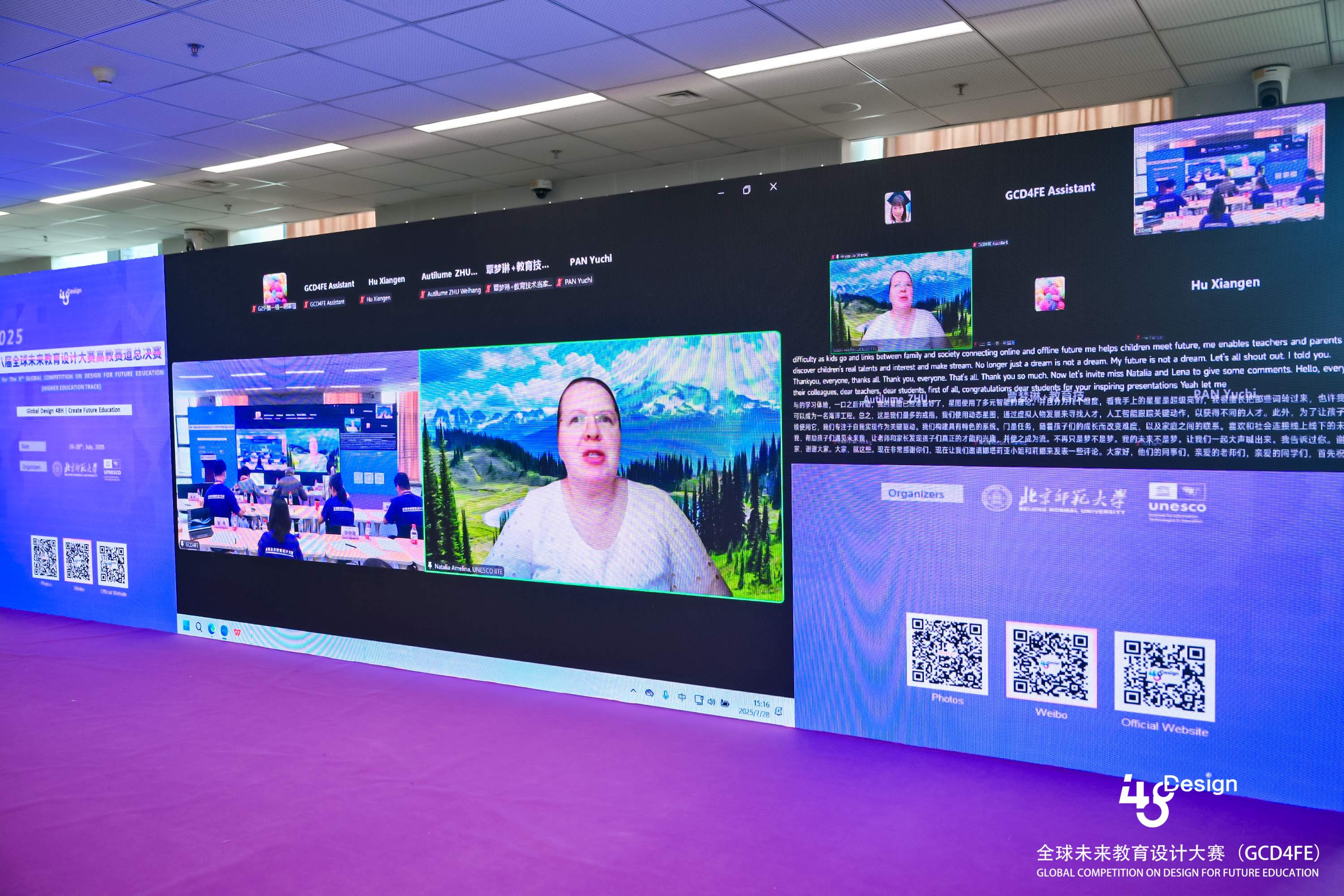
Ms. Natalia Amelina Providing Feedback
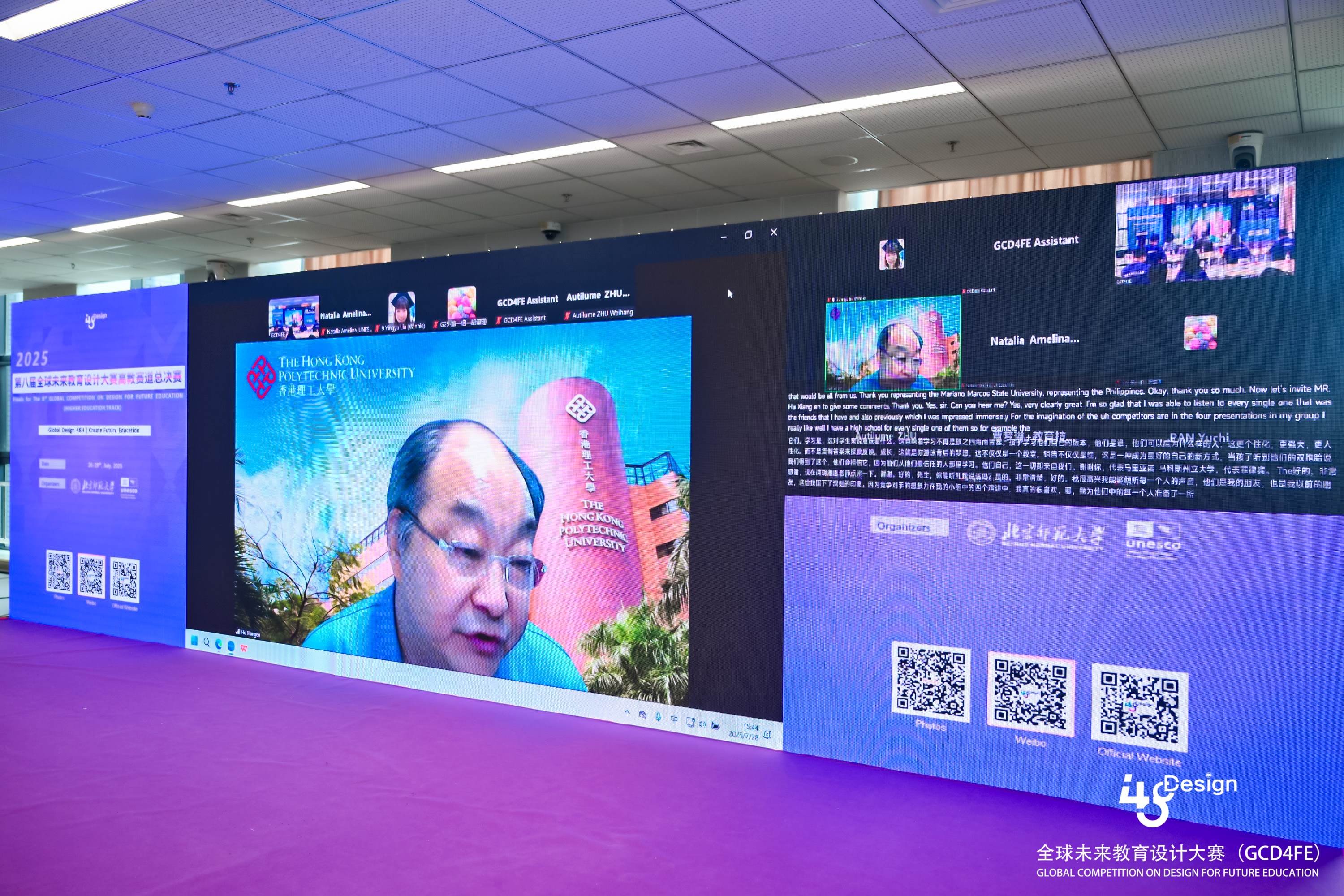
Prof. Xiang’en Hu Providing Feedback
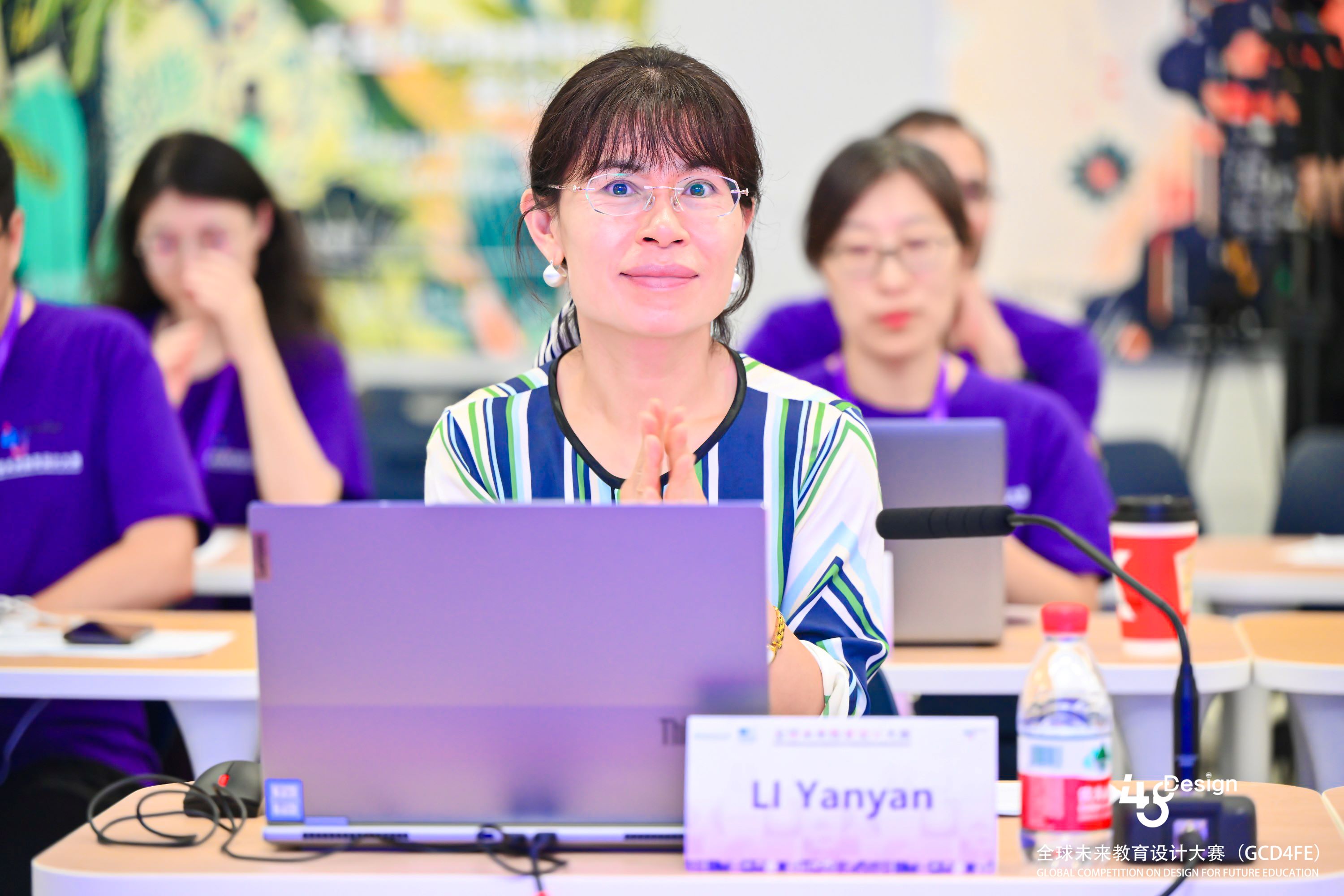
Prof. Yanyan Li Providing Feedback
At the award ceremony, Mr. Weizu Song announced the list of winners. Prof. Ronghuai Huang, Prof. Asha Singh Kanwar, Prof. Guangju Chen, Mr. Weidong Zhou, and mentor representatives presented awards to the outstanding teams, including one Gold Award, two Silver Awards, three Bronze Awards, as well as three Excellent Creativity Awards, two Excellent Design Awards, three Excellence Technology Innovation Awards, two Excellent Practice Awards, and two Excellent Presentation Awards. In addition, nine teams received Finalist Awards for advancing to the Finals.
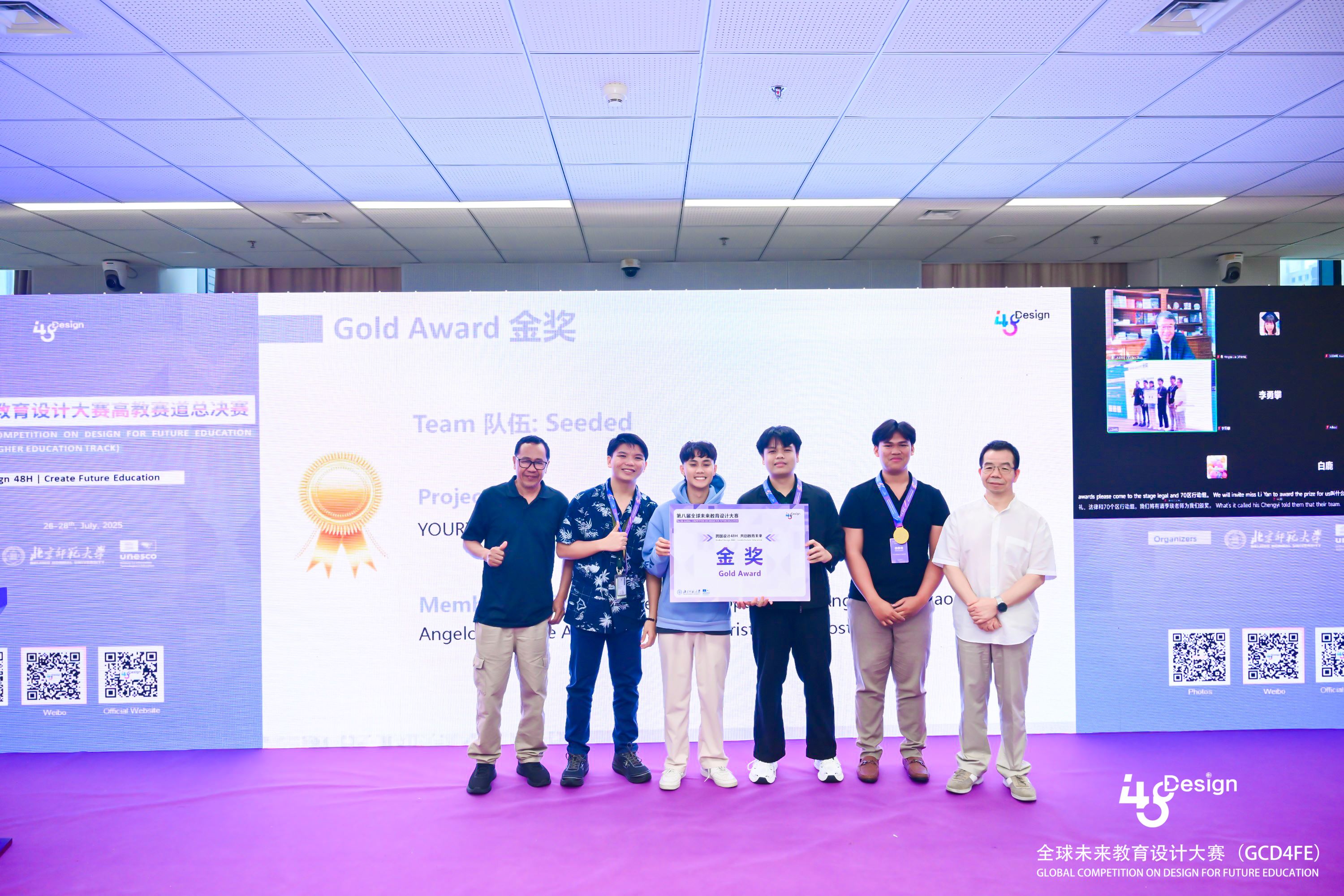
Gold Award Team
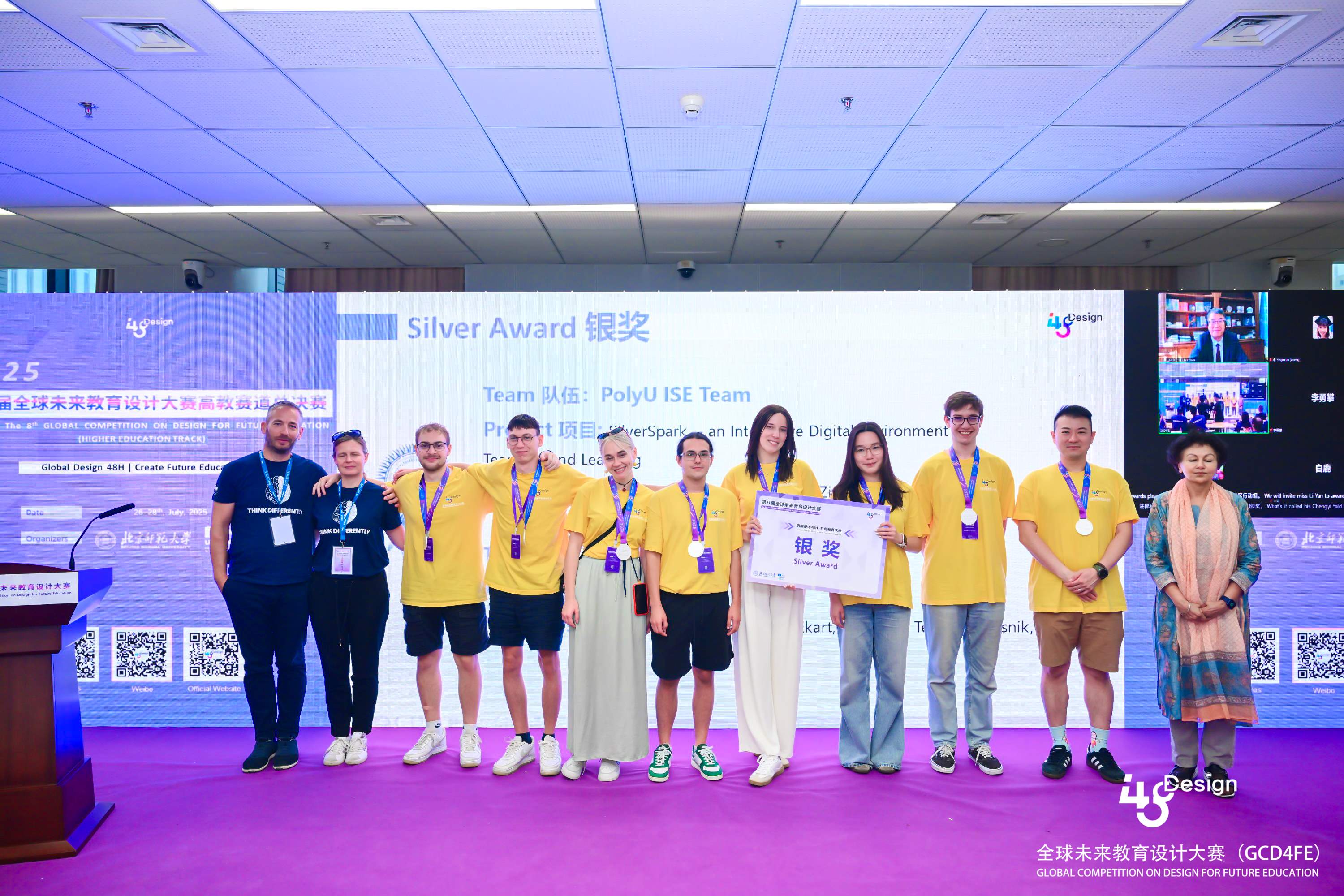
Silver Award Teams
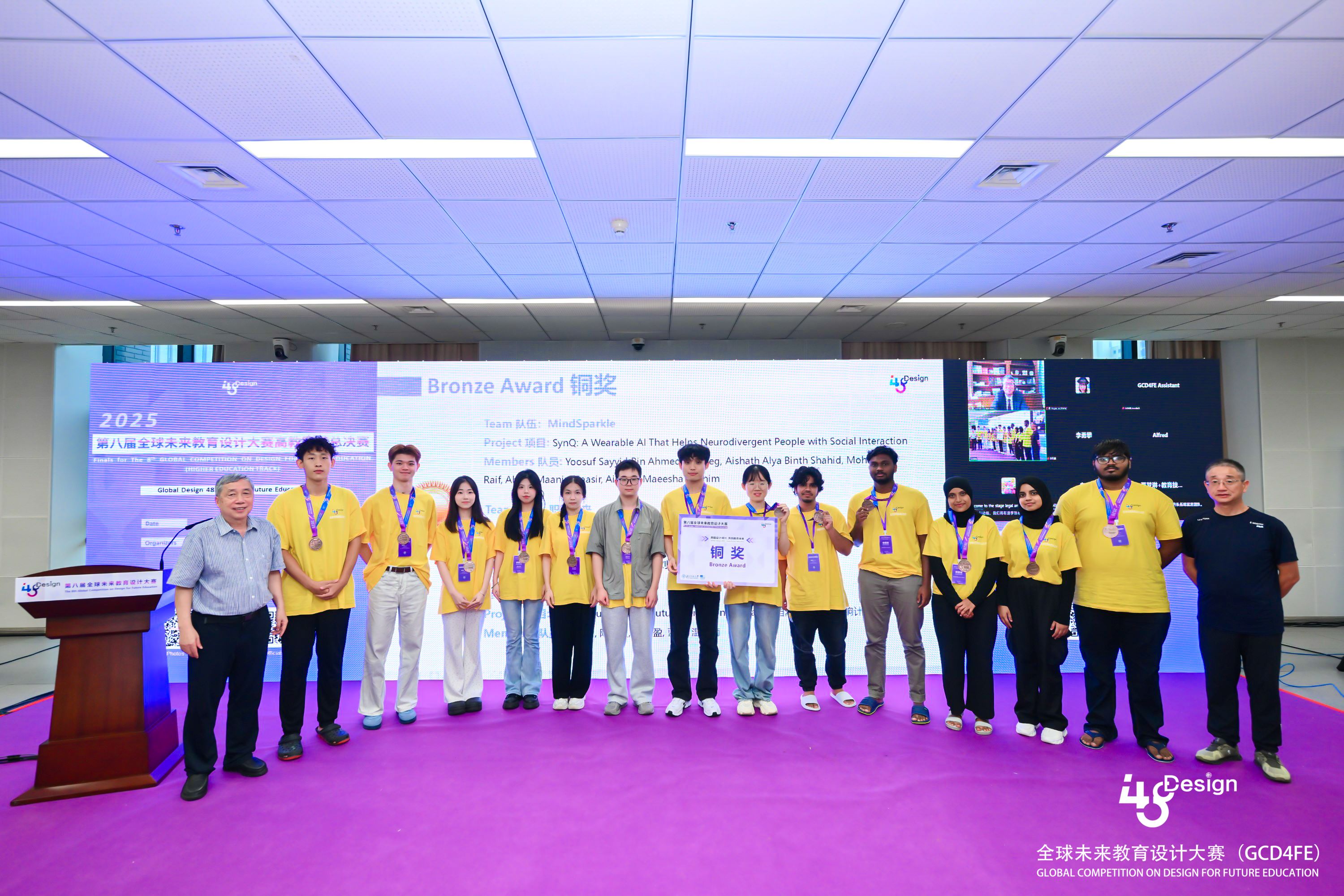
Bronze Award Teams
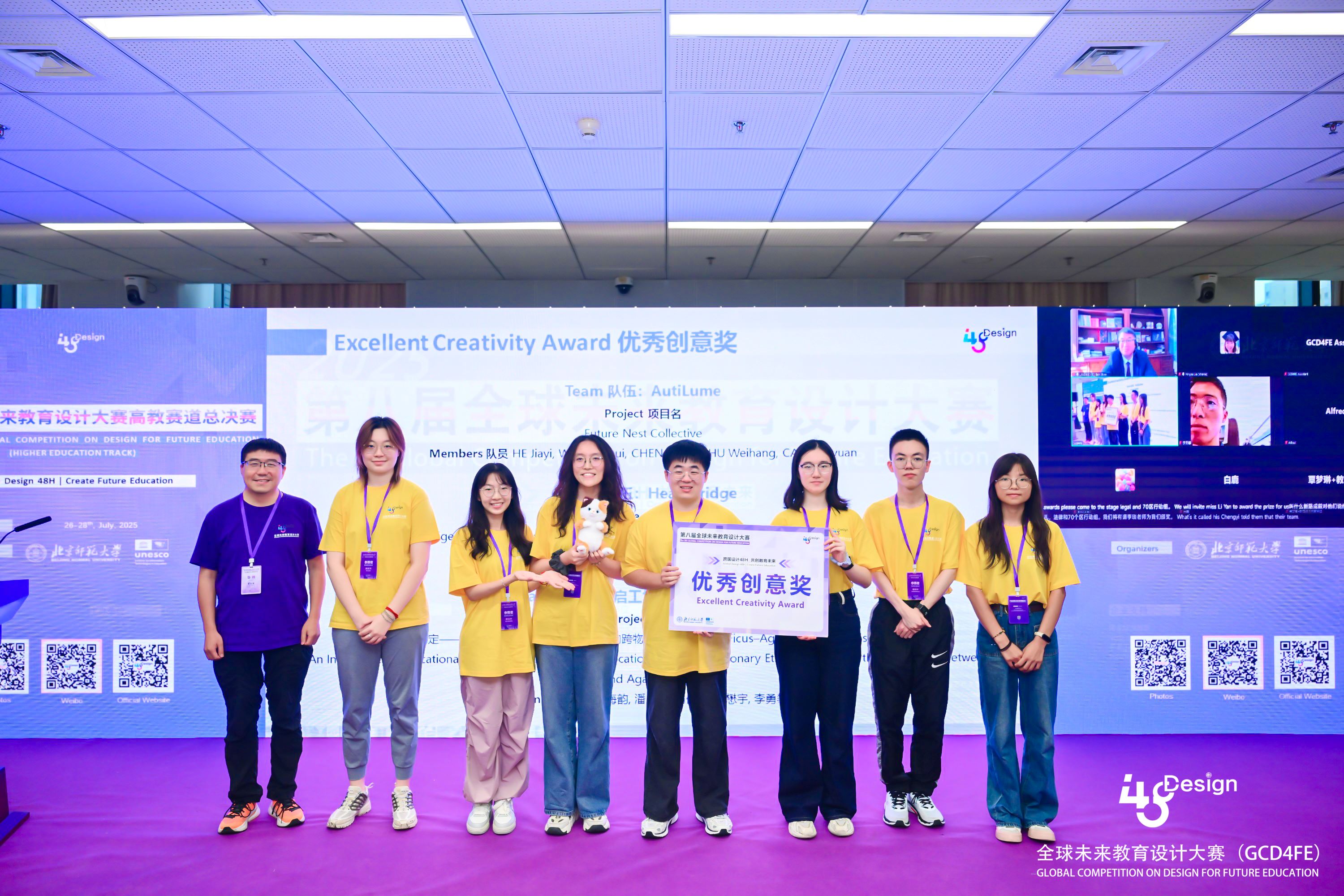
Excellent Creativity Award Teams
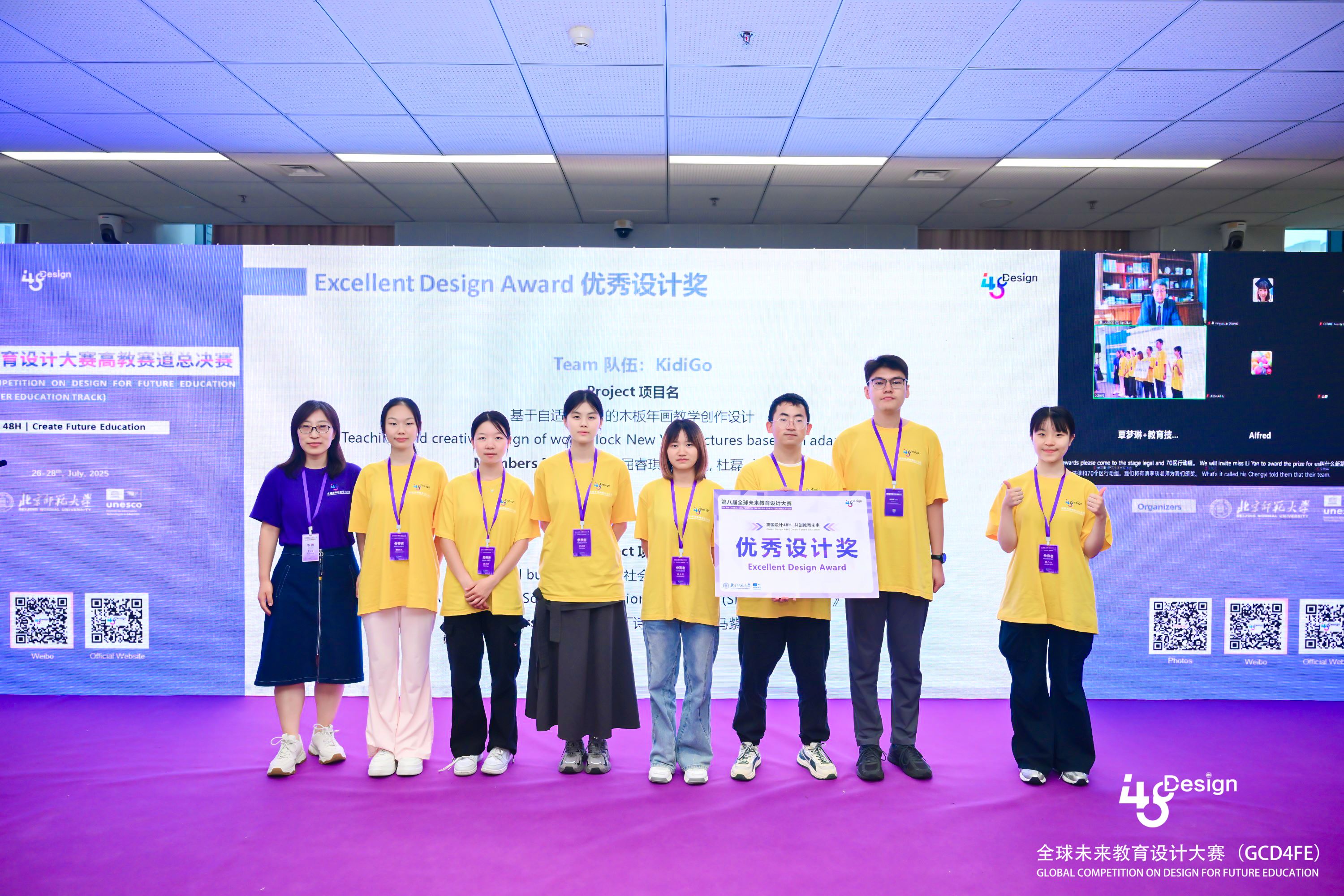
Excellent Design Award Teams
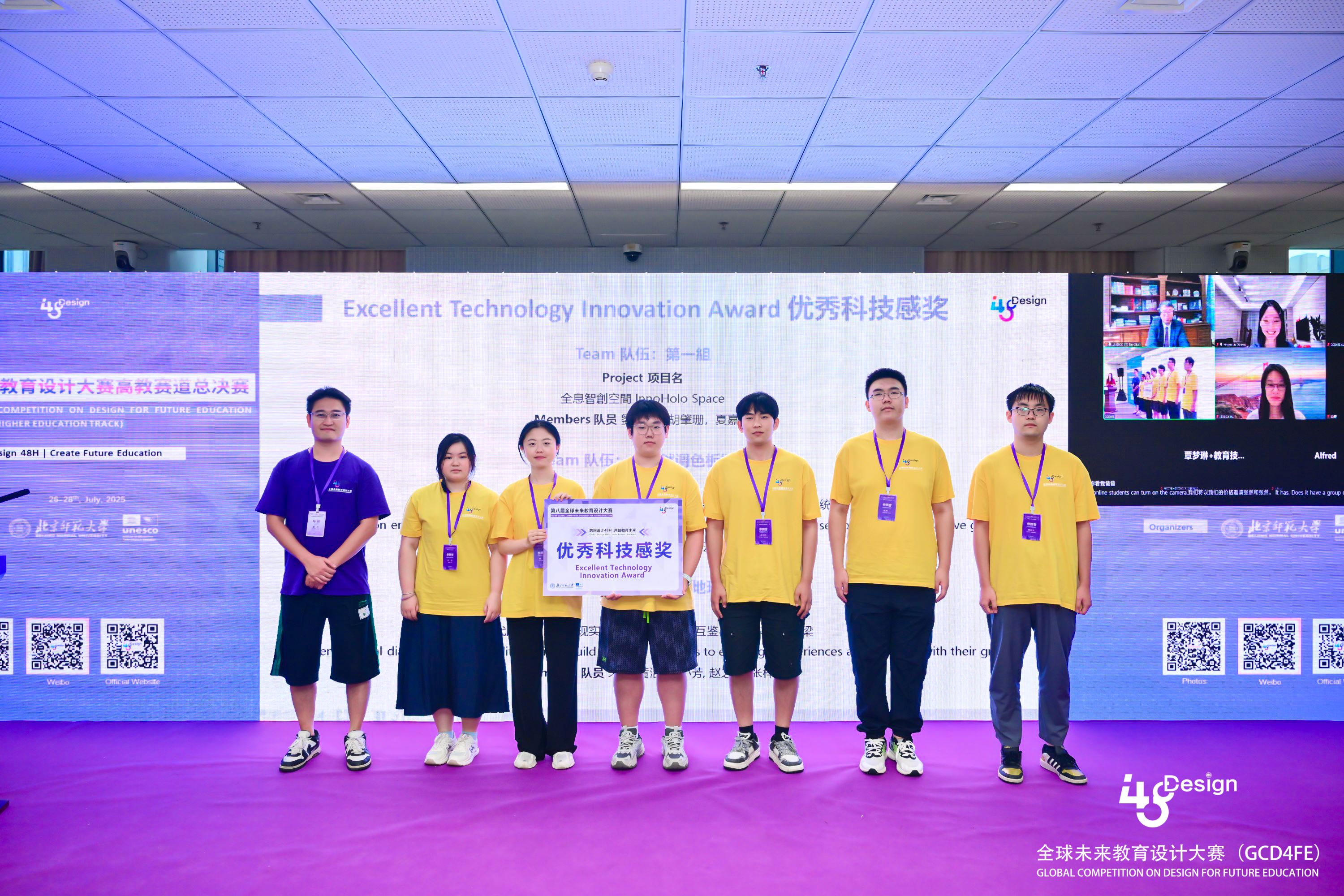
Excellent Technology Innovation Award Teams
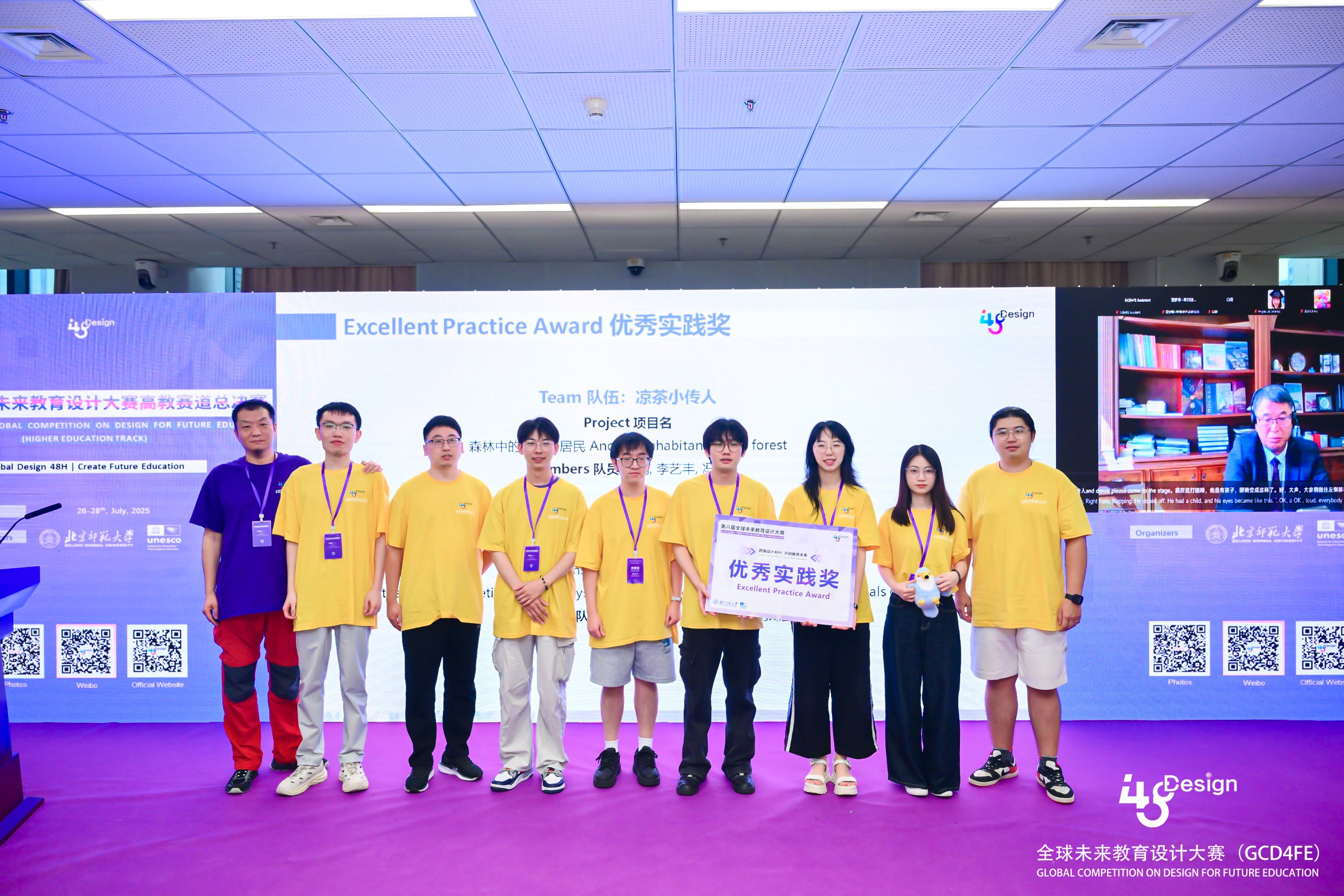
Excellent Practice Award Teams
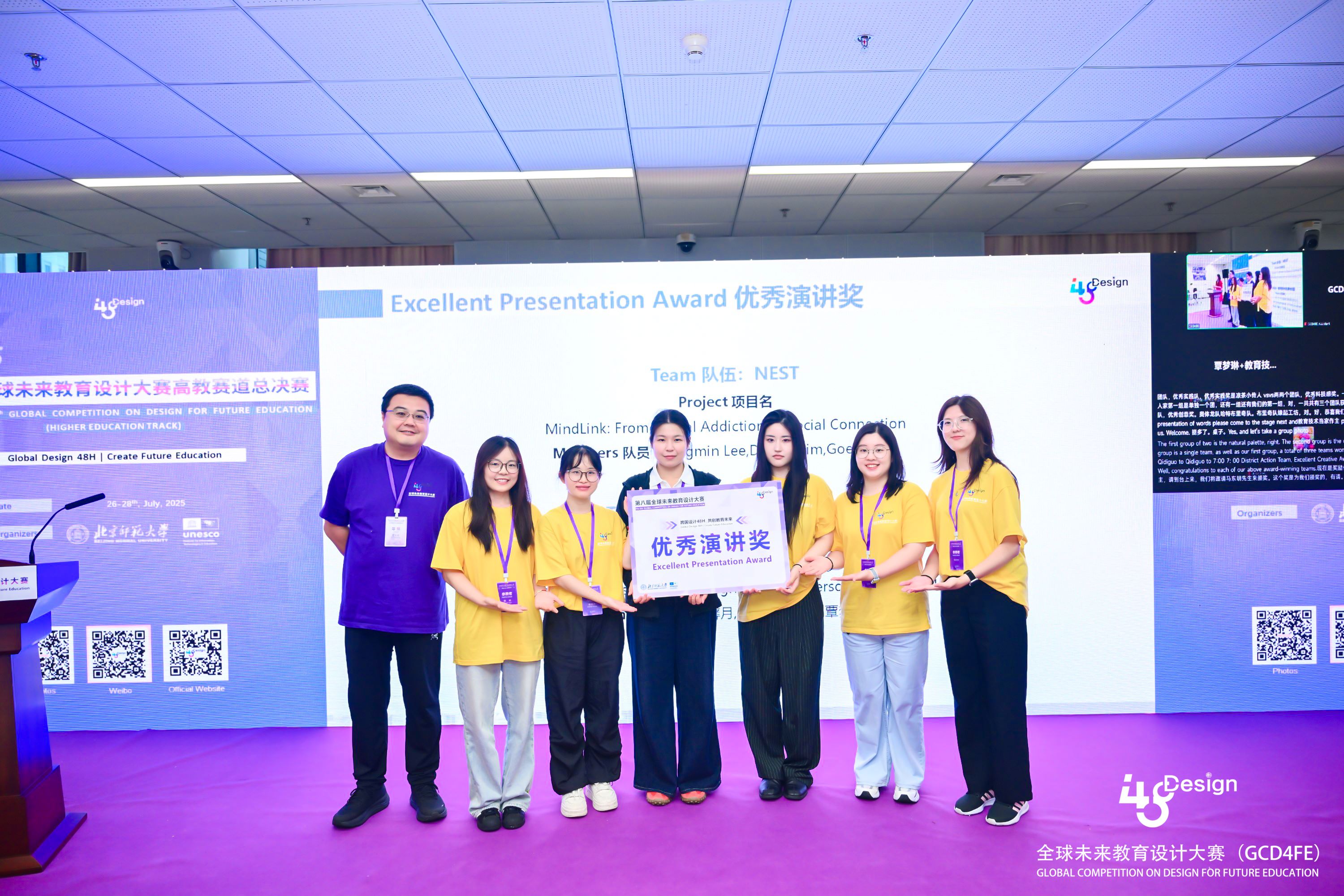
Excellent Presentation Award Teams
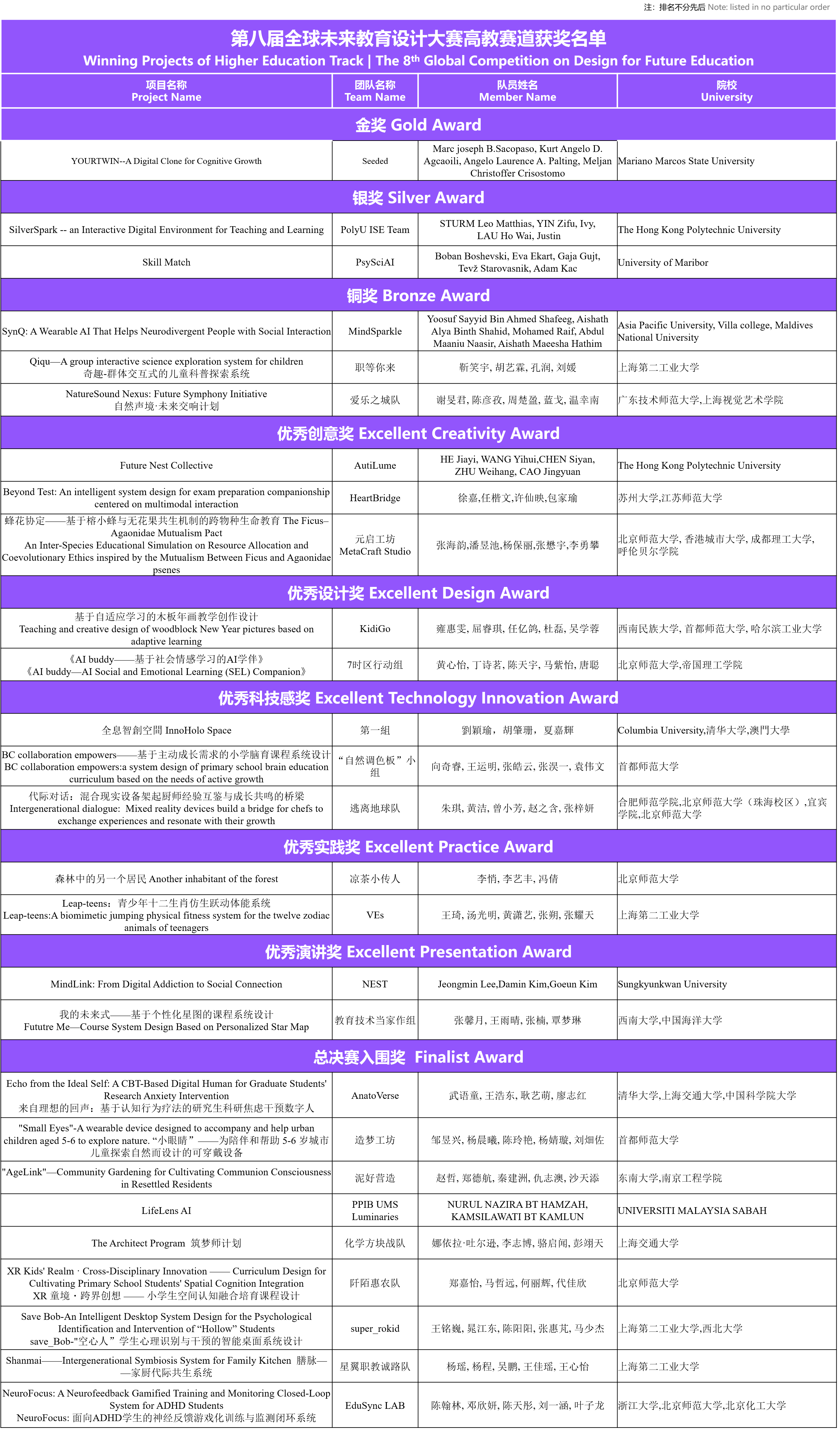
Winning Projects of the Global Finals
Finally, Prof. Guangju Chen delivered the closing summary. During the preliminary phase in early 2025, more than 1,000 university students from over 200 universities across 35 countries and regions actively participated. From June to July, four Regional Selection Contests were held in Croatia, South Korea, the Philippines, and the Maldives. After several rounds of selection, 117 participants from 27 teams representing more than 30 universities across 10 countries—including China, Slovenia, South Korea, Germany, the Maldives, and the Philippines—gathered in Beijing for the Finals. Throughout the Finals, Professor Chen was delighted to witness the contestants demonstrate outstanding creativity and collaboration under the guiding theme of “Symbiosis”, producing numerous future education proposals that combined innovation with humanistic care. He emphasized that the conclusion of the competition marks a new beginning for participants in their journey as education designers. He called on everyone to seize the opportunity for transformation and jointly create a fairer, more inclusive, and sustainable future for education.
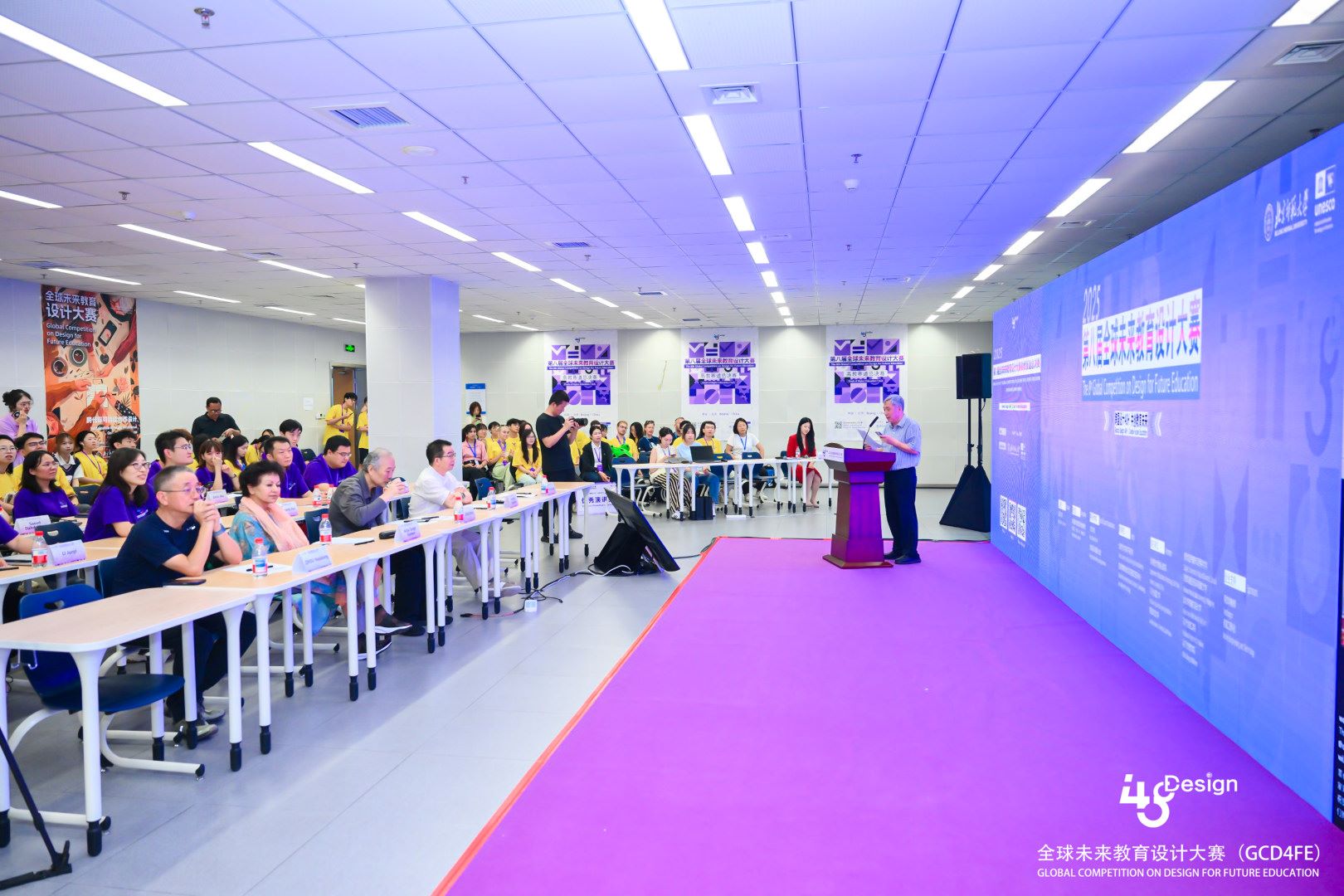
Prof. Guangju Chen Delivering the Closing Summary
The Global Finals of the Higher Education Track, the 8th Global Competition on Design for Future Education have officially concluded. Yet the march of educational innovation never ceases. We look forward to people from all walks of life around the world continuing to join hands—with technology as our wings and education as our vessel—to sail together toward a brighter future for education!

